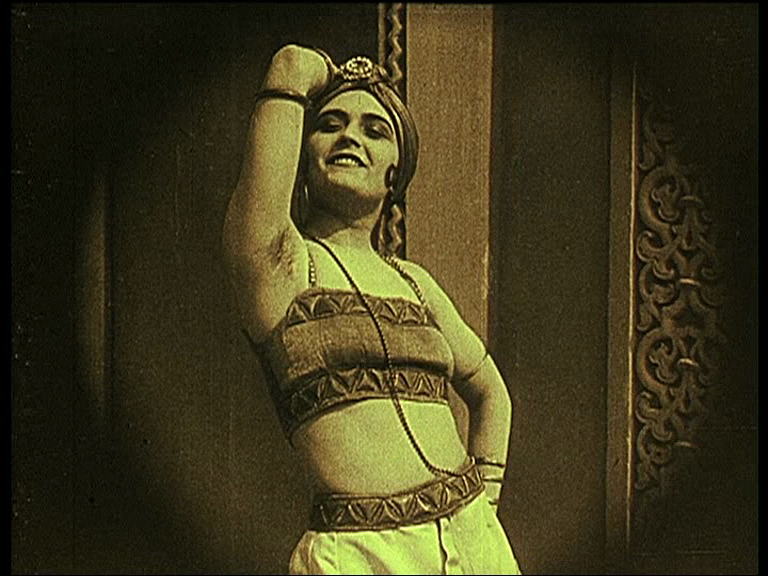The German director Ernst Lubitsch (1892-1947) is best known for the insouciant screwball comedies he made in Hollywood. Many who haven’t seen his films will have heard of “the Lubitsch Touch” – at its most basic, his winking way of signifying sexual activity was afoot without breaking the censorious Production Code. A form of visual evasiveness, it reminds us Lubitsch was the slyest of sophisticates.
The six films included on Masters of Cinema’s Lubitsch in Berlin are packed with moments of deftness that seldom require the imprimatur of sex. Having said that, the comedy Ich möchte kein Mann sein (1918), starring Lubitsch’s female muse Ossi Oswalda in drag, is a wonderful gender-bender. Oswalda also stars in the delightful “toy box” comedy Die Puppe (1919) and the erotically tinged royalist satire Die Austernprinzessin (1919), which shows “the Touch” beginning to emerge.
Lubitsch is noticeably sympathetic to the women in these films
As mentioned in the upbeat biographical documentary that is an extra here, Lubitsch was apprenticed in Max Reinhardt’s theatre company and would stay behind after hours, presumably studying the maestro’s dramaturgy. From Reinhardt, Lubitsch learned how to move crowds, which added to the epic quality of his bigger German films.
Nevertheless, it’s the deft or antic moments that linger in the mind. In the Arabian fable Sumurun (1920), which starred Pola Negri and Lubitsch himself as a lovelorn clown, the members of a sheik’s harem smuggle his pretty favourite’s hunky lover into the palace in a box and strew carpets and pillows in a circle for the couple to make love on clandestinely.
 In the historical tragedy Anna Boleyn (1920), Emil Jannings’s odious Henry VIII – a dead ringer for Holbein’s Henry, as it happens – first ensnares Anna (Henny Porten) between two doors after her hem gets caught in one of them. In the hilarious Expressionistic Alpine comedy Die Bergkatze (1921), Negri is revelatory as a bandit chief’s wild daughter who clownishly sabotages her impending wedding to an army playboy so that the commander’s pining daughter can have him.
In the historical tragedy Anna Boleyn (1920), Emil Jannings’s odious Henry VIII – a dead ringer for Holbein’s Henry, as it happens – first ensnares Anna (Henny Porten) between two doors after her hem gets caught in one of them. In the hilarious Expressionistic Alpine comedy Die Bergkatze (1921), Negri is revelatory as a bandit chief’s wild daughter who clownishly sabotages her impending wedding to an army playboy so that the commander’s pining daughter can have him.
Lubitsch, it’s worth pointing out, is noticeably sympathetic to the women in these films. In contrast to most of the Anne Boleyns in cinema, Porten’s is not a dark-haired schemer, but a demure blonde reluctantly prevailed upon to marry Henry; growing to love him, she is betrayed when he sets his eyes on Jane Seymour. As saucy as Negri’s Madame DuBarry is in the 1919 Lubitsch classic of that title, she gives a strong sense of an underprivileged woman rising on her wits in pre-revolutionary France. Its absence from this wondrous box set is the only flaw here.















Add comment